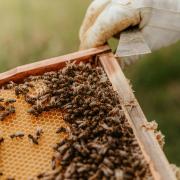
Global warming is one of the major issues we face today. It uniquely spans the whole planet, but it is also a problem which is, more and more often, sidelined. As a result, no one is really certain how bad it is – how much it affects us today, and how much it will affect us in future. We must make an attempt to understand all the elements of it before we can begin to understand its gravity.
However pressing this issue may be, we all seem fairly desperate to convince ourselves global warming is a phenomenon that has been grossly inflated by the media, and that we wouldn’t mind a little more sunshine anyway. According to a survey conducted by the Universities of Cardiff and Nottingham cited in The Telegraph (Gosden, 29 January 2015), in 2014 only 18% of people said they were ‘very concerned’ about climate change. Worry also doesn’t seem to equate to action – the BBC found that bus use has fallen while numbers of cars on the road are rising rapidly. The picture in the USA is bleaker. In November 2015 a poll conducted by Fox News showed that only 3% of people listed global warming as the biggest issue facing America. As the global superpower, this disregard is highly concerning.
But maybe there is no reason for concern. Perhaps we should be thinking about real, tangible issues which are causing millions of deaths every day – war, terrorism, poverty. The Earth has only warmed by 0.74°C over the last century, according to the educational website Down To Earth Climate Change. Unfortunately, while the numbers may seem negligible, we are already feeling the cost of this change. According to the Union of Concerned Scientists, a pressure group founded in 1969 by scientists and students at MIT, the production rate of certain essential food resources is at risk. Coffee production in many countries has dropped dramatically, as pests that feed on the coffee plant are thriving in the hotter weather. In Costa Rica for example, yields have decreased by around 40% since the year 2000, damaging the country’s economy as well as its citizens. But your cup of coffee is a small problem compared to those facing the animals that also inhabit this planet. Breeding times of many species are being changed, with the result that food chains are being severely disrupted. We will find ourselves inadvertently responsible for the extinction of many more species than we are now.
Where do we go from here? NASA predicts that as tropical temperature zones expand, tropical disease will go with them and illnesses such as malaria in particular will spread. Rising temperatures will also mean rising sea levels, causing devastation for people and industries inhabiting land at high risk of flooding. According to David Archer, a computational ocean chemist who has written several books on climate change, our actions are already irreparably damaging our future – he predicts that around 25% of CO2 emitted by burning a ton of coal today will still be having negative effects on Earth in 1000 years.
Fortunately, something is being done about the problem. Many climate change summits have been organised over the years, with an aim to take action on the issue. The British Government has also made efforts, introducing the Climate Change Act of 2008. The act has set the target that the carbon account of the UK in 2015 should be at least 80% less than what it was in 1990. It does not seem to be working: the government is not on track to meet targets (as reported by the BBC in October 2016) leading the Climate Change committee (formed as part of the Act) to advise the government not to set any new targets. The USA just elected a president who claimed in 2012 that ‘Any and all weather events are used by the global warming hoaxsters to justify higher taxes to save our planet! They don’t believe it!’ In spite of the gravity of the issue at hand, not enough is being done. The fact is, however much we try to persuade ourselves otherwise, our actions show only one thing –that we don’t care.
Emma Aarts
St Mary Magdalene Academy



























